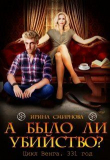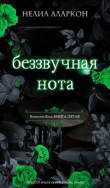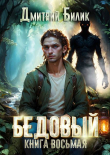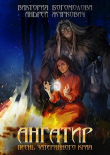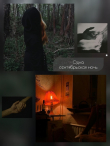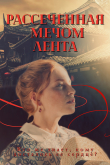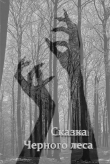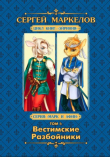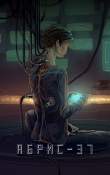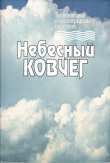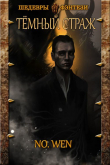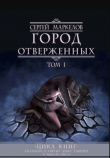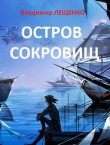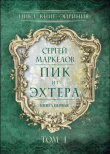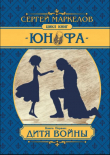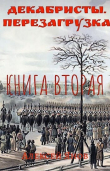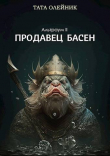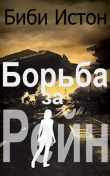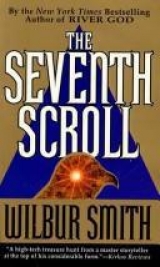
Текст книги "The Seventh Scroll"
Автор книги: Wilbur Smith
Жанр:
Исторические приключения
сообщить о нарушении
Текущая страница: 1 (всего у книги 42 страниц)
SEVENTH SCROLL
By: Wilber Smith
Synopsis:
A fading papyrus, nearly four thousand years old. Within it lie the
clues to a fabulous treasure from an almost forgotten time. ... a riddle
that becomes a savage battle across the unforgiving terain of North
Africa. When her husband is brutally murdered , Beautiful half-English,
half-Egyptian Royan Al Simmu is forced to seek refuge in England. With
eminent archaeologist Nicholas Quenton-Harper she can pick up the pieces
of her shattered life and find the courage to return to Ethiopia. For
Duraid. For the long dead slave Taita. And for the dreams of an ancient
Pharaoh ... Because others will stop at nothing to claim the prize as
their own.
This edition published 1996 by Pan Books
ISBN 0 330 34415 3
Copyright ( Wilbur Smith 1995
Printed and bound in Great Britain
Once more this book is for my wife Danielle.
Despite all the happy loving years we have spent together I feel that we
are only just beginning.
There is so much more to come.
The dusk crept in from the desert, and shaded the dunes with purple.
Like a thick velvet cloak it muted all sounds, so that the evening was
tranquil and hushed.
From where they stood on the crest of the dune they looked out over the
oasis and the complex of small villages that surrounded it. The
buildings were white with flat roofs and the date palms stood higher
than any of them except the Islamic mosque and the Coptic Christian
church.
These bastions of faith opposed each other across the lake.
The waters of the lake were sparkling. A flight of duck slanted down on
quick wings to land with a small splash of white close in against the
reed banks.
The man and the woman made a disparate couple. He was tall, though
slightly bowed, his silvering hair catching the last of the sunlight.
She was young, in her early thirties, slim, alert and vibrant. Her hair
was thick and curling, restrained now by a thong at the nape of her
neck.
"Time to go down now. Alia will be waiting." He smiled down at her
fondly. She was his second wife. When his first wife died he thought
that she had taken the sunlight with her. He had not expected this last
period of happiness in his life. Now he had her and his work. He was a
man happy and contented.
Suddenly she broke away from him, and pulled the thong from her hair.
She shook it out, dense and dark, and she laughed. It was a pretty
sound. Then she plunged down the steep slip-face of the dune, her long
skirts billowing around her flying legs. They were shapely and brown.
She kept her balance until halfway down, when gravity overwhelmed her
and she tumbled.
From the top he smiled down on her indulgently.
Sometimes she was still a child. At others she was a grave and dignified
woman. He was not certain which he preferred, but he loved her in both
moods. She rolled to a halt at the bottom of the dune and sat up, still
laughing, shaking the sand out of her hair. "Your turn!" she called up
at him. He followed her down sedately, moving with the slight stiffness
of advancing age, keeping his balance until he reached the bottom.
He lifted her to her feet. He did not kiss her, although the temptation
to do so was strong. It was not the Arab way to show public affection,
even to a beloved wife.
She "straightened her clothing and retied her hair before they set off
towards the village. They skirted the reed beds of the oasis, crossing
the rickety bridges over the irrigation canals. As they passed, the
peasants returning from the fields greeted him with deep respect.
"Salaam aleikum, Doktari! Peace be with you, doctor." They honoured all
men of learning, but him especially for his kindness to them and their
families over the years.
Many of them had worked for his father before him. It mattered little
that most of them were Moslem, while he was a Christian.
When they reached the villa, Alia, the old housekeeper, greeted them
with mumbles and scowls. "You are late. You are always late. Why do you
not keep regular hours, like decent folk? We have a position to
maintain."
"Old mother, you are always right," he teased her gently. "What would we
do without you to care for us?" He sent her away, still scowling to
cover her love and concern for him.
They ate the simple meat on the terrace together, dates and olives and
unleavened bread and goat's milk cheese. It was dark when they finished,
but the desert stars were bright as candles.
"Royan, -my flower." He reached across the table and touched her hand.
"It is time to begin work." He stood up from the table and led the way
to his study that opened out on to the terrace.
Royan Al Simma went directly to the tall steel safe against the far wall
and tumbled the combination. The safe was out of place in this room,
amongst the old books and scrolls, amongst the ancient statues and
artefacts and grave goods that were the collection of his lifetime.
When the heavy steel door swung open, Royan stood back for a moment. She
always felt this prickle of awe whenever she first looked upon this
relic of the ages, even after an interval of only a few short hours.
"The seventh scroll," she whispered, and steeled herself to touch it. It
was nearly four thousand years old, written by a genius out of time with
history, a man who had been dust for all these millennia, but whom she
had come to know and respect as she did her own husband. His words were
eternal, and they spoke to her clearly from beyond the grave, from the
fields of paradise, from the presence of the great trinity, Osiris and
Isis and Horus, in whom he had believed so devoutly. As devoutly as she
believed in another more recent Trinity.
She carried the scroll to the long table at which Duraid, her husband,
was already at work. He looked up as she laid it on the tabletop before
him, and for a moment she saw the same mystical mood in his eyes that
had affected her. He always wanted the scroll there on the table, even
when there was no real call for it. He had the photographs and the
microfilm to work with. It was as though he needed the unseen presence
of the ancient author close to him as he studied the texts.
Then he threw off the mood and was the dispassionate scientist once
more. "Your eyes are better than mine, my flower," he said. "What do you
make of this character?"
She leaned over his shoulder and studied the hieroglyph on the
photograph of the scroll that he pointed out to her. She puzzled over
the character for a moment before she took the magnifying glass from
Duraid's hand and peered through it again.
"It looks as though Taita has thrown in another cryptogram of his own
creation just to bedevil us." She spoke of the ancient author as though
he were a dear, but sometimes exasperating, friend who still lived and
breathed, and played tricks upon them.
"We'll just have to puzzle it out, then," Duraid declared with obvious
relish. He loved the ancient game. It was his life's work.
The two of them laboured on into the cool of the night. This was when
they did their best work. Sometimes they spoke Arabic and sometimes
English; for them the two languages were as one. Less often they used
French, which was their third common language. They had both received
their education at universities in England and the United States, so far
from this very Egypt of theirs. Royan loved the expression "This very
Egypt' that Taita used so often in the scrolls.
She felt a peculiar affinity in so many ways with this ancient Egyptian.
After all, she was his direct descendant.
She was a Coptic Christian, not of the Arab line that had so recently
conquered Egypt, less than fourteen centuries ago. The Arabs were
newcomers in this very Egypt of hers, while her own blood line ran back
to the time of the pharaohs and the great pyramids.
At ten 'clock Royan made coffee for them, heating it on the charcoal
stove that Alia had prepared for them before she went off to her own
family in the villa . They drank the 9 sweet, strong brew from thin cups
that were half-filled with the heavy grounds. While they sipped, they
talked as old friends.
.. For Royan that was their relationship, old friends. She had known
Duraid ever since she had returned from England with her doctorate in
archaeology and won her job with the Department of Antiquities, of which
he was the director.
She had been his assistant when he had opened the tomb in the Valley of
the Nobles, the tomb of Queen Lostris, the tomb that dated from about
1780 BC.
She had shared his disappointment when they had discovered that the tomb
had been robbed in ancient times and all its treasures plundered. All
that remained were the marvelous murals that covered the walls and the
ceilings of the tomb.
It was Royan herself who had been working at the wall behind the plinth
on which the sarcophagus had once stood, photographing the murals, when
a section of the plaster had fallen away to reveal in their niche the
ten alabaster jars. Each of the jars had contained a papyrus scroll.
Every one of them had been written and placed there by Taita, the stave
of the queen.
Since then their lives, Duraid's and her own, seemed to have revolved
around those scraps of papyrus. Although there was some damage and
deterioration, in the main they had survived nearly four thousand years
remarkably intact.
What a fascinating story they contained, of a nation attacked by a
superior enemy, armed with horse and chariot that were still alien to
the Egyptians of that time. Crushed by the Hyksos hordes, the people of
the Nile were forced to flee. Led by their queen, Lostris of the tomb,
they followed the great river southwards almost to its source amongst
the brutal mountains of the Ethiopian highlands.
Here amongst those forbidding mountains, Lostris had entombed the
mummified body of her husband, the Pharaoh Mamose, who had been slain in
battle against the Hyksos.
Long afterwards Queen Lostris had led her people back northwards to this
very Egypt. Armed now with their own horses and chariots, forged into
hard warriors in the African wilderness, they had come storming back
down the cataracts of the great river to challenge once more the Hyksos
invader, and in the end to triumph over him and wrest the double crown
of upper and lower Egypt from his grasp.
It was a story that appealed to every fibre of her being, and that had
fascinated her as they had unravelled each hieroglyph that the old slave
had penned on the papyrus'
It had taken them all these years, working at night here in the villa on
the oasis after their daily routine work at the museum in Cairo was
done, but at last the ten scrolls had been deciphered – all except the
seventh scroll. This was the one that was the enigma, the one which the
author had cloaked in layers of esoteric shorthand and allusions so
obscure that they were unfathomable at this remove of time. Some of the
symbols he used had never figured before in all the thousands of texts
that they had studied in their combined working lives. It was obvious to
them both that Taita had not intended that the scrolls should be read by
any eyes other than those of his beloved queen. These were his last gift
for her to take with her beyond the grave.
It had taken all their combined skills, all their imagination and
ingenuity, but at last they were approaching the conclusion of the task.
There were still many gaps in the translation and many areas where they
were uncertain whether or not they had captured the true meaning, but
they had laid out the bones of the manuscript in such order that they
were able to discern the outline of the creature it represented.
Now Duraid sipped his coffee and shook his head as he had done so often
before. "It frightens me," he said. "The responsibility. What to do with
this knowledge we have gleaned. If it should fall into the wrong hands
He sipped and sighed before he spoke again. "Even if we take it to the
right people, will they believe this material that is nearly four
thousand years old?"
"Why must we bring in others?" Royan asked with an edge of exasperation
in her voice. "Why can we not do alone what has to be done?" At times
like these the differences between them were most apparent. His was the
caution of age, while hers was the impetuosity of youth.
"You do not understand," he said. It always annoyed her when he said
that, when he treated her as the Arabs treated their women in a totally
masculine world. She had known the other world where women demanded and
received the right to be treated as equals. She was a creature caught
between those worlds, the Western world and the Arab world.
Royan's mother was an English woman who had worked at the British
Embassy in Cairo in the troubled times after World War II. She had met
and married Royan's father, who had been a young Egyptian officer on the
staff of Colonel Nasser. It was an unlikely union and had not persisted
into Royan's adolescence.
Her mother had insisted upon returning to England, to her home town of
York, for Royan's birth. She wanted her child to have British
citizenship. After her parents had separated, Royan, again at her
mother's insistence, had been sent back to England for her schooling,
but all her holidays had been spent with her father in Cairo. Her
father's career had prospered exceedingly, and in the end he had
attained ministerial rank in the Mubarak government. Through her love
for him she came to look upon herself as more Egyptian than English.
It was her father who had arranged her marriage to Duraid Al Simma. It
was the last thing that he had done for her before his death. She had
known he was dying at the time, and she had not found it in her heart to
defy him. All her modern training made her want to resist the
old-fashioned Coptic tradition of the arranged marriage, but her
breeding and her family and her Church were against her. She had
acquiesced.
Her marriage to Duraid had not proved as insufferable as she had dreaded
it might be. It might even have been entirely comfortable and satisfying
if she had never been introduced to romantic love. However, there had
been her liaison with David while she was up at university. He had swept
her up in the hurly-burly, in the heady delirium, and, in the end, the
heartache, when he had left her to marry a blonde English rose approved
of by his parents.
She respected and liked Duraid, but sometimes in the night she still
burned for the feel of a body as firm and young as her own on top of
hers.
Duraid was still speaking and she had not been listening to him. She
gave him her full attention once more. "I have spoken to the minister
again, but I do not think he believes in me. I think that Nahoot has
convinced him that I am a little mad." He smiled sadly. Nahoot Guddabi
was his ambitious and well-connected deputy. "At any rate the minister
says that there are no government funds available, and that I will have
to seek outside finance.
So, I have been over the list of possible sponsors again, and have
narrowed it down to four. There is the Getty Museum of course, but I
never like to work with a big impersonal institution. I prefer to have a
single man to answer to.
Decisions are always easier to reach."None of this was new to her, but
she listened dutifully.
"Then there is Herr von Schiller. He has the money and the interest in
the subject, but I do not know him well enough to trust him entirely."
He paused, and Royan had listened to these musings so often before that
she could anticipate him.
"What about the American? He is a famous collector," she forestalled
him.
"Peter Walsh is a difficult man to work with. His passion to accumulate
makes him unscrupulous. He frightens me a little."
"So who does that leave?" she asked.
He did not reply, for they both knew the answer to her question.
Instead, he turned his attention back to the material that littered the
work table.
"It looks so innocent, so mundane. An old papyrus scroll, a few
photographs and notebooks, a computer printout. It is difficult to
believe how dangerous these might be in the wrong hands." He sighed
again. "You might almost say that they are deadly dangerous."
Then he laughed. "I am being fanciful. Perhaps it is the late hour.
Shall we get back to work? We can worry about these other matters once
we have worked out all the conundrums set for us by this old rogue,
Taita, and completed the translation."
He picked up the top photograph from the pile in front of him. It was an
extract from the central section of the scroll. "It is the worst luck
that the damaged piece of papyrus falls where it does." He picked up his
reading glasses and placed them on his nose before he read aloud.
"'There are many steps to ascend on the staircase to the abode of Hapi.
With much hardship and endeavour we reached the second step and
proceeded no further, for it was here that the prince received a divine
revelation. In a dream his father, the dead god pharaoh, visited him and
commanded him, "I have travelled far and I am grown weary. It is here
that I will rest for all eternity."" Duraid removed his glasses and
looked across at Royan, "'The second step". It is a very precise
description for once. Taita is not being his usual devious self."
"Let's go back to the satellite. photographs," Royan suggested, and drew
the glossy sheet towards her. Duraid came around the table to stand
behind her.
"To me it seems most logical that the natural feature that would
obstruct them in the gorge would be something like a set of rapids or a
waterfall. If it were the second waterfall, that would put them here-'
Royan placed her finger on a spot on the satellite photograph where the
narrow snake of the river threaded itself through the dark massifs of
the mountains on either hand.
At that moment she was distracted and she lifted her head. "Listen!" Her
voice changed, sharpening with alarm.
"What is it?" Duraid looked up also.
"The dog," she answered.
"That damn mongrel," he agreed. "It is always making the night hideous
with its yapping. I have promised myself to get rid of him."
At that moment the lights went out.
They froze with surprise in the darkness. The soft thudding of the
decrepit diesel generator in its shed at the back of the palm grove had
ceased. It was so much a part of the oasis night that they noticed it
only when it was silent.
Their eyes adjusted to the faint starlight that came in through the
terrace doors. Duraid crossed the room and took the oil lamp down from
the shelf beside the door where it waited for just such a contingency.
He lit it, and looked across at Royan with an expression of comical
resignation.
"I will have to go down-'
Duraid," she interrupted him, "the dog!'
He listened for a moment, and his expression changed to mild concern.
The dog was silent out there in the night.
"I am sure it is nothing to be alarmed about." He went to the door, and
for no good reason she suddenly called after him.
"Duraid, be careful!" He shrugged dismissively and stepped out on to the
terrace.
She thought for an instant that it was the shadow of the vine over the
trellis moving in the night breeze off the desert, but the night was
still. Then she realized that it was a human figure crossing the
flagstones silently and swiftly, coming in behind Duraid as he skirted
the fishpond in the centre of the paved terrace.
"Duraid!" She screamed a warning and he spun round, lifting the lamp
high.
"Who are you?" he shouted. "What do you want here?" The intruder closed
with him silently. The traditional full-length dishdasha robe swirled
around his legs, and the white ghutrah headcloth covered his head. In
the light of the lamp Duraid saw that he had drawn the corner of the
headcloth over his face to mask his features.
The intruder's back was turned towards her so Royan did not see the
knife in his right hand, but she could not mistake the upward stabbing
motion that he aimed at Duraid's stomach. Duraid grunted with pain and
doubled up at the blow, and his attacker drew the blade free and stabbed
again, but this time Duraid dropped the lamp and seized the knife arm.
The flame of the fallen oil lamp was guttering and flaring. The two men
struggled in the gloom, but Royan saw a dark stain spreading over her
husband's white shirt front.
"Run!" he bellowed at her. "Go! Fetch help! I cannot hold him!" The
Duraid she knew was a gentle person, a soft man of books and learning.
She could see that he was outmatched by his assailant.
"Go! Please! Save yourself, my flower!" She could hear by his tone that
he was weakening, but he still clung desperately to his attacker's knife
arm.
She had been paralysed with shock and indecision these few fatal
seconds, but now she broke free of the spell and ran to the door.
Spurred by her terror and her need to bring help to Duraid she crossed
the terrace, swift as a cat, and he held the intruder from blocking her
way.
She vaulted over the low stone wall into the grove, and almost into the
arms of the second man. She screamed and twisted away from him as his
outstretched fingers raked across her face, and almost broke free, but
his fingers hooked in the thin cotton stuff of her blouse.
This time she saw the knife in his hand, a long silvery flash in the
starlight, and it goaded her to fresh effort. The cotton tore in his
grip and she was free, but not quickly enough to escape the blade. She
felt the sting of it across her upper arm, and she kicked out at him
with all the strength of panic and her hard young body behind it. She
felt her foot slam into the softness of his lower body with a shock that
jarred her knee and ankle, and her attacker cried out and fell to his
knees.
Then she was away and running through the palm grove. At first she ran
without purpose or direction. She ran simply to get as far from them as
her flying legs would carry her. Then gradually she brought her panic
under control. She glanced back, but saw nobody following her.
As she reached the edge of the lake she slowed her run to conserve her
strength, and she became aware of the warm trickle of her own blood down
her arm and then dripping from her finger-tips.
She stopped.and rested her back against the rough hole of one of the
palms while she tore a strip of cloth from her ripped blouse and
hurriedly bound up her arm. She was shaking so much from shock and
exertion that even her uninjured hand was fumbling and clumsy. She
knotted the crude bandage with her teeth and left hand, and the bleeding
slowed.
She was uncertain of which way to run, and then she saw the dim
lamplight. in the window of Alia's shack across the nearest irrigation
canal. She pushed herself away from the palm trunk and started towards
it. She had covered less than a hundred paces when a voice called from
the grove behind her, speaking in Arabic, "Yusuf, has the woman come
your way?"
immediately an electric torch flashed from the darkness ahead of her and
another voice called back, "No, I have not seen her."
Another few seconds and Royan would have run full into him. She crouched
down and looked around her desperately. There was another torch coming
through the grove behind her, following the path she had taken. It must
be the man she had kicked, but she could tell by the motion of the torch
beam that he had recovered and was moving swiftly and easily again.
She was blocked on two sides, so she turned back along the edge of the
trail. The road lay that way. She might be able to meet a late vehicle
travelling on it. She lost her footing on the rough ground and went
down, bruising and scraping her knees, but she jumped up again and
hurried on. The second time she stumbled, her outthrust left hand landed
on a round, smooth stone the size of an orange. When she went on she
carried the stone with her; as a weapon it gave her a glimmer of
comfort.
Her wounded arm was beginning to hurt, and she was driven by worry for
Duraid. She knew he was badly wounded, for she had seen the direction
and force of the knife thrust. She had to find help for him. Behind her
the two men with torches were sweeping the grove and she could not keep
her lead ahead of them. They were gaining on her – she could hear them
calling to each other.
She reached the road at last, and with a small whimper of relief climbed
out of the drainage ditch on to the pale gravel surface. Her legs were
shaking under her so that they could hardly carry her weight, but she
turned in the direction of the village.
She had not reached the first bend before she saw a set of headlights
coming slowly towards her, flickering through the palm trees. She broke
into a run down the centre of the road.
"Help me!" she screamed in Arabic. "Please help me!'
The car came through the bend and before the headlights dazzled her she
saw that it was a small, darkcoloured Fiat. She stood in the centre of
the road waving her arms to halt the driver, lit by the headlights as
though she were on a theatre stage. The Fiat stopped in front of her,
and she ran round to the driver's door and tugged at the handle.
"Please, you must help me."
The door was opened from within, and then was thrown back with such
force that she staggered off-balance.
The driver leapt out into the roadway and caught her by the wrist of the
injured arm. He dragged her to the Fiat and pulled open the back door.
"Yusuf! Bacheed' he shouted into the dark grove. "I have her." And she
heard the answering cries and saw the torches turn in their direction.
The driver was forcing her head down and trying to push her into the
back seat, but she realized then that she still had the stone in her
good hand. She turned slightly and braced herself, and then swung her
fist with the stone still clenched in it against the side of his head.
It caught him squarely on the temple.
Without another sound he dropped to the gravel surface and lay
motionless.
Royan dropped the stone and pelted away down the road, but she found
that she was running straight down the path of the headlights, and they
lit her every movement.
The two men in the grove shouted again and came up on to the gravel
roadway behind her, almost shoulder to shoulder.
Glancing back, she saw them gaining on her swiftly, and she realized
that her only chance was to get off the road and back into the darkness.
She turned and plunged down the bank. Immediately she found herself
waist-deep in the waters of the lake.
In the darkness and the confusion she had become disorientated. She had
not realized that she had reached the point where the road skirted the
embankment at the water's edge. She knew that she did not have time to
climb back on to the road, and she knew also that there were thick
clumps of papyrus and reeds ahead of her, that might give her shelter.
She waded out until the bottom sloped away steeply under her feet, and
she found herself forced to swim. She broke into an awkward
breast-stroke, hampered by her skirts and her injured arm. However, her
slow and stealthy movements created almost no disturbance on the
surface, and before the men on the road had reached the point where she
had descended the bank, she reached a dense stand of reeds.
. She eased her way into the thick of them and let herself sink. Before
the water covered her nostrils she felt her toes touch the soft ooze of
the lake bottom. She stood there quietly, with just the top of her head
above the surface and her face turned away from the bank. She knew her
dark hair would not reflect the light of a probing torch.
Though the water covered her ears, she could make out the excited voices
of the men on the road. They had turned their torches down towards the
water and were shining them into the reeds, searching for her. For a
moment one of the beams played full on her head, and she drew a deep
breath ready to submerge, but the beam moved on and she realized that
they had not picked her out.
The fact that she had not been seen even in the direct torchlight
emboldened her to raise her head slightly until one ear was clear and
she could make out their voices.
They were speaking Arabic, and she recognized the voice of the one named
Bacheet. He appeared to be the leader, for he was giving the orders.
"Go in there, Yusuf, and bring the whore out."
She heard Yusuf slipping and sliding down the bank and the splash as he
hit the water.
"Further out," Bacheet ordered him. "In those reeds there, where I am
shining the torch."
"It is too deep. You know well I cannot swim. It will be over my head."
"There! Right in front of you. In those reeds. I can see her head."
Bacheet encouraged him, and Royan dreaded that they had spotted her. She
sank down as far as she could below the surface.
Yusuf splashed around heavily, moving towards where she cowered in the
reeds, when suddenly there was a thunderous commotion that startled even
Yusuf, so that he shouted aloud, "Djinns! God protect meV as the flock
of roosting duck exploded from the water and launched into the dark sky
on noisy wings.
Yusuf started back to the bank and not any of Bacheet's threats could
persuade him to continue the hunt.
"The woman is not as important as the scroll," he protested, as he
climbed back on to the roadway. "Without the scroll there will be no
money. We always know where to find her later."
Turning her head slightly, Royan saw the torches move back down the road
towards the parked Fiat whose headlights still burned. She heard the
doors of the car slam, and then the engine revved and pulled away
towards the villa.
She was too shaken and terrified to make any attempt to leave her
hiding-place. She feared that they had left one of their number on the
road to wait for her to show herself.
She stood on tiptoe with the water lapping her lips, shivering more with
shock than with cold, determined to wait for the safety of the sunrise
before she moved.
It was only much later when she saw the glow of the fire lighting the
sky, and the flames flickering through the trunks of the palm trees,
that she forgot her own safety and dragged herself back to the bank.
She knelt in the mud at the water's edge, shuddering and shaking and
gasping, weak with loss of blood and shock and the reaction from fear,






